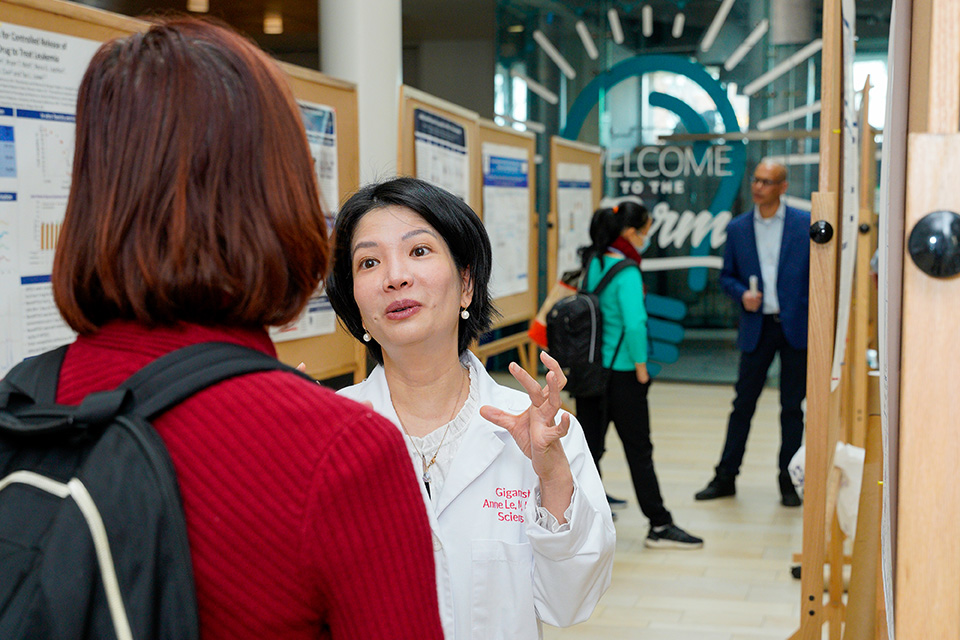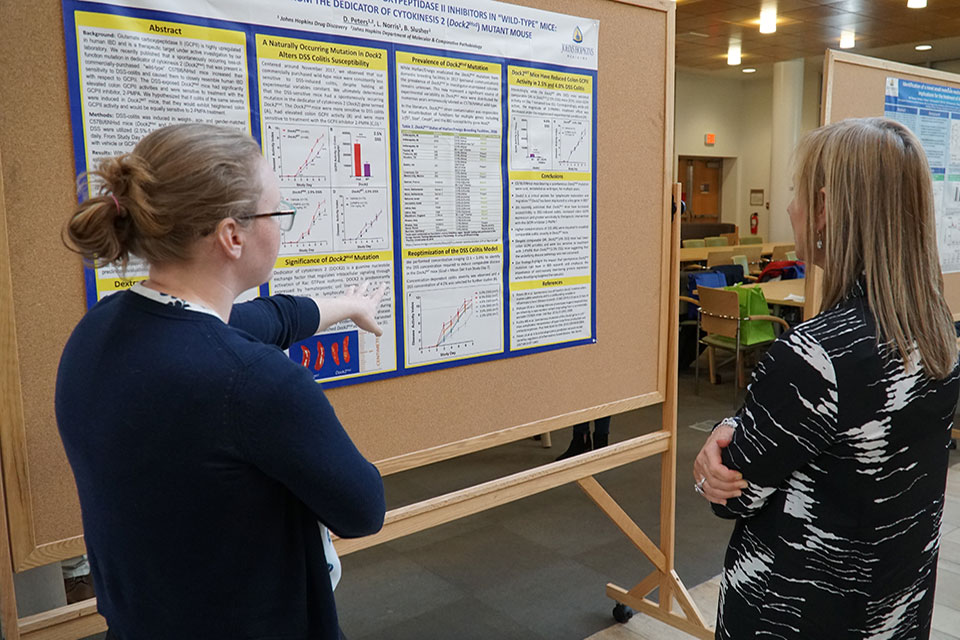Pharmaceutical Sciences Professor Discovers Compounds for New Disease Therapies
Novel discovery to help develop therapies for pulmonary, oncology, and muscle degenerative diseases.

By Soujanya Bhumkar
August 3, 2022
Paul Shapiro, PhD, professor of pharmaceutical sciences (PSC) at the University of Maryland School of Pharmacy, is partnering with Gen1E Lifesciences, a next-generation multitarget techbio company, to use Shapiro’s biotechnology to investigate treatment for a variety of diseases.
Shapiro and colleagues Alexander MacKerell, PhD, Grollman-Glick Professor of Pharmaceutical Sciences and director of the Computer-Aided Drug Design Center, and Steven Fletcher, PhD, associate professor of PSC, have discovered and patented chemical compounds known as next-generation Extracellular Signal-Regulated Kinase 1/2 (ERK1/2) signaling modulators. Licensed through UM Ventures, Gen1E Lifesciences plans to use the compounds to advance its portfolio of novel immunomodulators for rare and inflammatory diseases for patients with unmet needs in the areas of pulmonary, oncology, and muscle degenerative diseases.
ERK1/2 is part of the mitogen-activated protein kinase (MAPK) family, an essential signaling pathway that plays a key role in several basic cellular processes, including proliferation and differentiation. Given the ubiquity of the ERK cascade in cellular processes, it shares the pathogenesis of several pulmonary, oncology, and muscle degeneration diseases. ERK1/2’s multiple mechanisms-of-action make it an ideal platform candidate.
“Our ERK1/2 research has unlocked new approaches to selectively inhibit enzyme functions involved in disease, which is different from the current ERK1/2 inhibitors that block all enzyme functions and often result in unwanted toxicities and side effects,” Shapiro said. “Our discovery of compounds that target unique substrate binding pockets provides an opportunity to develop novel function-selective kinase therapies that will treat the disease and cause fewer side effects.”
The new license builds on the strong working relationship between GEn1E and the University of Maryland, Baltimore (UMB). In 2019, GEn1E licensed a technology from UMB for developing next-generation p38 immunomodulators. That agreement is bearing fruit today with a lead compound in the clinic and several more novel compounds being accelerated in the pipeline.
“With the addition of ERK1/2 as a new target, the scope of diseases for which we can point our powerful AI-based ‘Platform in a Mechanism’ model expands greatly,” said Ritu Lal, PhD, CEO of GEn1E, a 1996 graduate of the School of Pharmacy’s PhD in PSC program. “The University of Maryland, Baltimore has produced stellar technologies that have the potential to create long-lasting impacts for patients, many of whom are devastated without effective therapies. A proud UMB alum myself, I am thrilled to continue growing a close working relationship with the University.”
The power of GEn1E’s platform is evident in the progress the company has made since graduating from Y Combinator in late 2019. The company’s lead compound is in clinical stage, and GEn1E scientists have developed more than 21 novel next-generation immunomodulators—all using only seed funding. GEn1E has demonstrated an unprecedentedly fast pace and efficiency in drug development using it’s AI platform.
“We are delighted to license additional assets to GEn1E Lifesciences and continue to develop our strong working relationship,” said Phil Robilotto, DO, MBA, associate vice president of technology transfer at UMB and director of UM Ventures. “GEn1E’s application of machine learning to accelerate the process of drug development is very exciting and we are thrilled to see the unmet needs of novel and next-generation therapies being fulfilled.”



